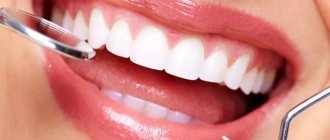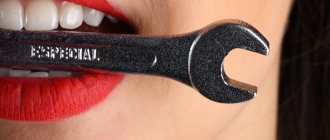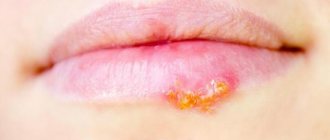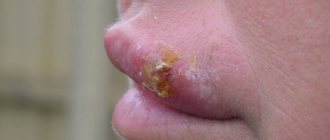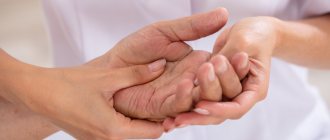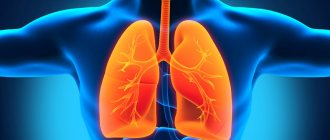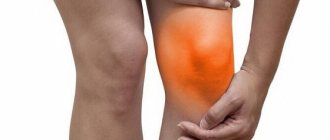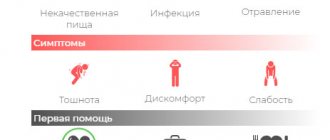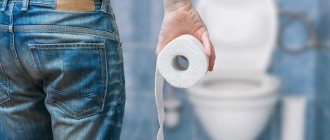Causes of acute dental pain
The following are the root causes of acute toothache:
- Caries. Exacerbation of dentalgia causes food to get into the inflamed area. The sensations are characterized as aching, wave-like.
- Periodontitis (inflammation of the gums) . Manifested by throbbing pain. The patient observes tooth instability, which is associated with the looseness of the inflamed gum tissue.
- Violation of the integrity of the enamel . The condition causes mechanical damage to the jaw (teeth), long-term lack of treatment for caries. Several hours may pass from the moment the defect appears to the first pain.
- Pulpitis. It manifests itself as intense pain that does not respond to the analgesics taken. The wave-like nature of the unpleasant sensation is explained by the transition of caries to the pulp, which is supplied with a large number of nerve fibers. The pain covers the ear, adjacent teeth, and spreads to the temple.
- Periodontitis. The pathology is caused by mechanical damage to the tooth and is characterized by an inflammatory process of the periosteum ligaments. These structures help hold the tooth inside the socket. Manifests itself with sudden, sharp pain. Against the background of infection, a cystic neoplasm or granuloma forms inside the periosteum.
Each of these conditions needs to be treated. If the patient does not want to see a doctor, the risk of complications increases. These include: osteomyelitis (destruction of bone tissue), abscess, phlegmon (pathologies mean massive suppuration of the gums and tooth sockets).
Elimination methods
An integrated approach to the problem includes the use of traditional medicine recipes. Massage of biologically active points and drugs with analgesic effects.
The following recipes are popular among people:
Why does a healthy tooth hurt?
- A mixture of garlic and onion. The ingredients are mixed in equal proportions and crushed to a mushy state to soothe toothache. To enhance the effectiveness of the medicine, you can add a pinch of salt to it. The mixture is applied to the problem area and covered on top with a piece of bandage or gauze. Onions and garlic neutralize pathogenic bacteria, and salt reduces swelling of the inflamed area.
- Clove oil. The product recommends moistening gauze and applying to the affected area 3-4 times a day for 15 minutes. If oil is not available, then you can use the flowers of the plant in crushed form.
- Herbal decoction: St. John's wort, chamomile and calendula are mixed in equal proportions (a tablespoon of each plant) and pour 0.5 liters of boiling water. The medicine is infused for 1 hour, and after that it is used to rinse the mouth. The procedure is repeated every 2 hours.
- Propolis. The adhesive mass is applied to the aching tooth to quickly eliminate the symptoms of inflammation.
- Plantain leaf. The plant is washed under running water, the juice is squeezed out of the leaf and applied to the problem area for several minutes. Painful sensations after using plantain are muffled after 30 minutes.
- Vodka and salt: add a pinch of salt to 50 g of liquid and hold it near the diseased element for several minutes. The method is suitable only for those people who have open ulcers on the surface of their mucous membranes.
- Tincture of birch buds: 50 g of herbal ingredient is poured with 200 ml of vodka and infused for 5-10 days. The medicine should be used at the first feeling of discomfort in the tooth. This method is also not used in cases of inflammation of the oral mucosa and the presence of open wounds on them.
Massage
A special massage can help relieve tooth pain. The first effective action is to massage the cheek in the area located above the diseased tooth.
Massaging biologically active points to eliminate signs of toothache
To eliminate the symptoms of the problem, rubbing the auricle is also performed. This place contains a large number of nerve endings, massaging which will temporarily reduce the intensity of attacks.
Acupressure performed with the fingertips helps a lot with this problem. Several points should be noted that are suitable for the procedure:
- the area between the thumb and index finger;
- the inside of the neck;
- the fold between the nose and lip;
- the outside of the eye.
Each point is worked out for 2-5 minutes. To enhance the effectiveness of the event, you can rub it with a piece of ice. Movements are carried out clockwise, without strong pressure on biologically active points.
Painkillers
Preparations with an anesthetic effect are available in almost every first aid kit. It must be remembered that doctors do not recommend consuming them for a long time. An overdose can cause intoxication of the body and a malfunction in the digestive system.
Painkillers are conventionally divided into 4 groups:
- Non-narcotic for mild pain. Suitable for relieving mild pain symptoms. This category of drugs includes Analgin, Paracetamol.
- Non-narcotic for severe pain. The category of such drugs includes Ibuprofen, Nurofen. You are allowed to take no more than 4 tablets per day. Drugs containing nimesulide have a powerful effect against toothache, but they have a lot of contraindications and side effects (Ketarol, Ketanov). You are allowed to take no more than 2 tablets containing nimesulide per day.
- Narcotic. Painkillers in this group contain morphine and promedol. They should be used only in extreme cases, because they block the transmission of nerve impulses and negatively affect the performance of the nervous system.
- Antispasmodic. The category of drugs includes the following drugs: Noshpa, Papaverine. Dentists are least likely to prescribe antispasmodics to relieve toothache.
It is necessary to note the methods of administration and contraindications available for popular remedies that allow you to get rid of toothache:
- Baralgin. A maximum of 2 capsules per day is allowed. The medicine is contraindicated in pregnant women and children under 15 years of age. Another prohibition for use is chronic kidney disease.
- Nurofen – has anti-inflammatory and analgesic effects. Contraindications to treatment with Nurofen are severe liver pathologies.
- Analgin is an effective and inexpensive remedy for acute toothache. It is not recommended to place the tablet on a sore tooth, since these actions provoke damage to the enamel.
- Ketorol is a powerful pain reliever. You are not allowed to take more than 3 tablets of the drug per day due to possible disruption of the kidneys and liver. Take the capsule with plenty of water. If this rule is not followed, the therapeutic effect may be achieved later.
- Tempalgin. Contraindicated for use in children and adults suffering from diseases of the blood and internal organs. The product is effective for toothaches of moderate intensity. The maximum daily dosage is 6 tablets.
Non-dental reasons
The doctor’s task when treating a patient with pain is to establish that it was dental problems that caused the deterioration in health. For this purpose, the specialist conducts differential diagnostics. The doctor compares and then excludes other diseases that manifest symptoms similar to dentalgia.
The specialist will have to make sure that there are no pathologies of the neurological, cardiovascular system, or ENT organs. These diseases include:
- Neuralgia . The trigeminal nerve is present in the human body. The structure provides sensitivity to the face and oral cavity. With inflammatory damage to the trigeminal nerve, the patient experiences intense pain. Clinical manifestations are complemented by irritability, swelling of the cheeks, and lacrimation. Standard analgesics are practically ineffective, and when they reduce discomfort, the result does not last long. Inflammation of the trigeminal nerve is treated by a neurologist. An experienced dentist is able to immediately determine that the disease does not apply to his profile.
- Migraine . The headache is characterized by unilateral localization. The patient's general well-being worsens from loud sounds and bright lights. The location of pain can migrate - cover the temporal, parietal region. Debilitating discomfort spreads to the orbit and frontal part. When the condition is left untreated for a long time, standard analgesics do not have the expected effect. Then the intensity increases, and the patient mistakenly perceives the headache as a toothache.
- Otitis. Inflammation of the ear canal most often occurs in children, but also occurs among adults. Clinical manifestations of the disease are hearing loss, throbbing pain on one side of the head. An unpleasant sensation spreads to the lower jaw.
- Violation of the functional ability of the heart (angina pectoris, myocardial infarction). Pain syndrome is predominant in this case. An unpleasant (burning, pulsating) sensation spreads to the left shoulder blade, shoulder, and lower jaw. If the heart rhythm is disturbed, the patient notes pain in the lower jaw. This becomes a reason to suspect problems with the condition of the teeth. In the process of performing diagnostics, the doctor focuses on the clinical picture and examination results. To determine the cause of dentalgia, a person seeking help will have to undergo several diagnostic procedures.
Reasons not related to teeth
With severe toothache, it seems that everything hurts - the ear, throat, head and even the skin on the face. In some cases, a person is not able to determine the source of the sensation and believes that a bad tooth is to blame.
Night pain similar to toothache can also occur in the following cases:
- For inflammation of the trigeminal nerve. Characterized by a nagging, severe pain, localized in the area of one tooth or spread throughout the entire jaw. This is explained by the fact that the branches of the nerve are located very close to the roots of the teeth and when they become inflamed, pain occurs that is very similar to toothache.
- For sinusitis, sinusitis, otitis media. Swollen tissues and sinuses filled with purulent contents put pressure on the roots of the teeth. The resulting pain is very similar to toothache. In most cases, it is observed in children who find it difficult to correctly determine the location of pain
- Under stress. Chronic night pain can be considered as one of the factors confirming the stressful state of the body.
Important.
Even if you have such assumptions, you will still have to visit the dentist. This must be done in order to exclude inflammatory diseases of the teeth and oral cavity, correctly diagnose and prescribe the correct treatment.
Toothache with sinusitis
When a patient presents with acute toothache, the doctor should rule out sinusitis – inflammation of the maxillary sinuses. Discomfort in the jaw is similar in both diseases. In case of sinusitis, the patient is concerned about:
- The presence of copious mucous discharge from the nose.
- The wavy nature of the pain, its localization in addition to the jaw - the forehead, with a transition to the area under the eyes.
- Increase in body temperature to high levels.
- Sore throat, irritation inside the throat, difficulty swallowing.
- Weakness, dizziness, apathy, dyspeptic disorders (nausea, vomiting, lack of appetite).
It is important that with sinusitis the deterioration of the condition develops against the background or after a cold. Treatment of the disease in question is carried out by an ENT doctor.
Causes of the problem
There are several causes of tooth pain. Among the main factors predisposing to the problem are:
- tooth root abscess;
- carious lesions of enamel, pulp or dentin;
- cutting through eights;
- otitis;
- inflammation of the maxillary sinuses;
- pieces of food stuck in the interdental space;
- inflammation of the gums;
- enamel damage: chips, cracks;
- improper enamel filling.
The symptoms of pain can be varied: from aching sensations to acute pulsating attacks. You need to pay attention to the signs of a toothache. If the enamel reacts to cold and hot, then thinning of the enamel has occurred. Special pastes containing fluoride can help in this situation. If pain is felt when biting into food, then damage to the dental canals has occurred. In this case, only a doctor can alleviate the signs of pathology. Untimely treatment threatens to remove the diseased element.
General recommendations for pain relief
The following tips will help relieve tooth pain:
- Do not concentrate on feeling unwell, try to distract your thoughts from it.
- Make sure that the disturbing part of the mouth is not clogged with food fragments. In addition to putting pressure on the inflamed area, pieces of food create a favorable environment for the life of pathogenic microflora. It is advisable to use a toothpick.
- The horizontal position aggravates the condition due to increased blood flow to the jaw. For dental problems, it is better to minimize bed rest (with the exception of high body temperature).
- Limit contact of food with the inflamed area of the mouth. When chewing food, try to use the healthy side.
- It is equally important to abandon the idea of using heat sources. High temperatures relieve discomfort for a short time. Heat can aggravate the inflammatory process if it is accompanied by the formation of a purulent focus.
Dead tooth hurts
After the nerve is removed, the tooth may respond for some time with mild pain to pressure or biting, including at night. This is a normal reaction. In these cases, it is enough to take a painkiller tablet.
If the pain becomes twitching and intensifies, it means that the nerve was not completely removed or the doctor made mistakes related to cleaning the canals or installing a filling. The biggest problem is that neither pills nor folk remedies will help. Start looking for a doctor right away.
How to relieve acute toothache
There is a wide range of means and methods that can be used to get rid of or minimize tooth pain. All of them are divided into main and auxiliary methods and are related to official or folk medicine. Modern analgesics are aimed at eliminating pain of various types, localization, and degrees of intensity. An insufficiently pronounced analgesic effect provides:
- Nurofen . Contains Ibuprofen, a non-steroidal anti-inflammatory substance.
- Spasmalgon. The drug is made on the basis of Analgin. The drug is contraindicated for use in children under 6 years of age.
- Baralgin. Analgin produces an analgesic effect. Dosed use is acceptable even for dentalgia in children.
- Askofen . Relieves debilitating sensations due to the presence of powerful substances in the combination. They are represented by Paracetamol, Aspirin and Caffeine. Contraindicated in children under 15 years of age.
- Grippostad. The active ingredients of the drug are Paracetamol and vitamin C. Ascorbic acid prolongs the analgesic effect of the drug. The use of the drug requires a high level of care and caution.
- Actasulide. An effective medicine that provides relief from pain, but the patient’s age under 12 years is a limiting factor. Direct contraindications for use are the presence of stomach ulcers, duodenal ulcers, kidney failure, liver failure; impairment of the functional ability of the heart.
- Nise. Eliminates dentalgia in 5-7 minutes. The effect lasts for 6-8 hours, but the root cause of the unpleasant sensation is of decisive importance. Taking several tablets at once is neither practical nor safe. To achieve the desired effect, just take 1 Nise tablet with water.
- Ketorol. A powerful pain reliever, but you can take it no more than once every 3 hours. Before visiting the dentist, you should refrain from using Ketorol for at least 4-5 hours. Since the drug negatively affects the possibility and duration of anesthesia, it distorts clinical manifestations.
- Tempalgin . Eliminates low-intensity dentalgia. The permissible frequency of use is 4 times a day, 1 tablet. Before using any of the listed drugs, it is important to read the accompanying instructions.
The use of the medicine will not cause harm if the patient is not allergic to its active substances. In order to determine sensitivity to the drug, you should initially take ¼ of the tablet and monitor how you feel.
If after half an hour there is no dizziness, nausea, itchy skin, lacrimation, or shortness of breath, you can take the rest of the tablet. Then the expected analgesic effect occurs, and the patient knows for sure that the drug is safe for him.
Emergency help: what to do if your tooth hurts
Thus, if a tooth hurts, the only option is to take tablet analgesics, or try to relieve the pain with dental drops. And this is correct if you need, for example, to get through the night calmly, and the next day you are going to see a doctor.
Of course, there is another option - to suppress the pain with analgesics in the hope that everything will go away. It won't work. And below we will explain why. So what to do if your tooth hurts, and what is the best way to relieve the pain urgently. The answer to this question will differ depending on the cause of the pain, which may be due to -
- or with the development of pulpitis (nerve inflammation),
- or with periodontitis (inflammation at the apex of the tooth root).
What to do to prevent tooth pain due to pulpitis -
When the carious cavity becomes deep enough, and the nerve is separated from it only by a thin layer of healthy tooth tissue, the infection can already penetrate into the tooth cavity and cause inflammation of the nerve. This inflammation of the nerve is commonly called pulpitis.
How to understand that you have pulpitis - acute pulpitis is characterized by severe throbbing pain, which becomes even more severe at night. As a rule, pain is spontaneous, but in some cases it can be provoked by thermal irritants (cold and hot).
With pulpitis, patients often have great difficulty identifying the diseased tooth, because the pain may spread to other teeth. A very important diagnostic criterion for the development of pulpitis is that with pulpitis there is always no pain when biting on a tooth or tapping on it (these symptoms already indicate the development of periodontitis).
Emergency help - what to do if a tooth hurts due to pulpitis: such a tooth can be cured only by removing the inflamed nerve and subsequent filling of the root canals. But, if you need to delay your visit to the dentist a little, then you can relieve the pain at home -
- using strong analgesics (Fig. 1-2),
- using “dental drops” (Fig. 3),
- placing a cotton ball soaked in a solution of 2% Lidocaine (this anesthetic is sold in pharmacies without a prescription) into the carious cavity.
Remember that topical pain relievers (such as dental drops or lidocaine) will only be effective if you have a cavity where you can place a cotton ball soaked in these remedies. If you have a toothache, for example, under a filling, then only tablet analgesics can help you.
Important : what to do if your tooth hurts badly, and analgesics are practically impossible - it is best to urgently go to the dentist, even at night to a 24-hour dental clinic. No one will treat your tooth all night, they will only open your tooth cavity and put arsenic, or remove the nerve and put a special medicine in your tooth (all this will take about 15 minutes). And the rest of the treatment will be carried out at the next visit. But believe me, you will feel almost instant relief.
What to do if a tooth hurts due to periodontitis -
You can be sure that you have periodontitis if any of the following is related to your tooth -
- when biting on a tooth there is pain,
- Previously, a fistula could appear in the projection of this tooth on the gum (Fig. 4),
- swelling of the gums appeared in the projection of the diseased tooth (Fig. 5-6),
- there is swelling of the soft tissues of the face,
- The tooth had already been treated before, but they didn’t just put a filling in it, but they filled the root canals.
With periodontitis, inflammation occurs outside the tooth and consists of the development of a purulent process at the apex of the tooth roots, which over time can lead to both tooth loss and the formation of cysts or granulomas at the apex of the roots.
What to do - only a dentist can cure this tooth disease. If the tooth has not been previously treated, then the nerve must be removed and the root canals filled (24stoma.ru). If the canals were previously sealed poorly (an x-ray will show this), then they need to be unsealed, the inflammation treated and then sealed again. A visit to the dentist is urgent, because... At any moment, with this pathology, the gums may swell or a purulent gumboil may form on half the face.
Emergency help - what to do if a tooth hurts very badly due to periodontitis and you urgently need something to numb the pain - here only tablet analgesics such as ibuprofen, ketoprofen or ketorolac can help you (Fig. 1-2). Any anesthetic drops, rinses, etc. will not be effective, because... the inflammation is localized too deep in the gum.
Acute pain during periodontitis always indicates the formation of a purulent abscess in the area of the apex of the roots of this tooth. If the pain is catastrophic and cannot be tolerated, then it is best to go to a 24-hour dentistry. On your first visit, they will only open the tooth cavity and allow the pus to drain out through the root canals. All this will only take 15 minutes.
For those who are far from the doctor (in the north, in the tundra, in the countryside): we can only sympathize with you. Of course, you can start taking antibiotics and anti-inflammatory drugs, this will at least slow down the development of inflammation and reduce pain, but will not completely solve the problem. Even if we assume that the inflammation suddenly subsides, it can worsen again at any moment.
Additional recommendations for pain management
Ketorol, Pentalgin, Ketanov, Nimesulide have a high analgesic effect. Despite the guaranteed analgesic effect, these medications should not be taken by pregnant women and children. The active components of analgesics easily cross the placental barrier and can harm the fetus. As for children, a more careful, accurate calculation of the dosage of the drug is required. You will not be able to install it yourself.
Ultracaine injection eliminates dentalgia for 6 hours. But performing the injection yourself is contraindicated. At home, you can moisten a cotton swab with one of the indicated solutions (you must first carefully open the ampoule). Then apply the prepared tampon to the gum. The first signs of effectiveness are a decrease in the sensitivity of oral tissues.
The use of antibacterial drugs is contraindicated. These medications require schematic administration and are prescribed only taking into account the existing pathology.
Taking analgesics must be stopped before visiting a doctor (at least 3 hours before). The active ingredients in painkillers reduce sensitivity in the mouth. The patient cannot accurately explain to the doctor the location of the pain and its nature. This makes it difficult for a specialist to diagnose.
If the dentist confirms that the pain is caused by dental problems and excludes the presence of other pathologies, anesthesia will be required. A patient who has been taking analgesics for a long time to feel better, such an action reduces the possibility of performing it.
Emergency measures
If an attack of toothache occurs at a time when it is not possible to see a doctor, then you can resort to home remedies. It is best if the approach to solving the problem is comprehensive. The patient needs to perform a few simple steps:
- Thoroughly brush your teeth with a brush and remove any remaining food from the interdental space. After the procedure, your mouth should be rinsed with plenty of water.
- After this, the mouth is rinsed with saline or soda solution.
- After carrying out hygiene measures, analgesics are taken.
These measures will minimize the impact of external factors on tooth enamel. Additionally, folk remedies that have anti-inflammatory and analgesic effects are used. In ancient times, ancestors coped with toothache with the help of medicinal plants and improvised methods.
The best herbal remedy for toothache is a decoction of calendula, chamomile or sage. Herbs have a powerful anti-inflammatory effect and are good at eliminating attacks of pain caused by dental diseases at the initial stage.
If tooth pain occurs, you should minimize the amount of food you eat. Sweets and foods with aggressive ingredients are completely removed from the diet.
Traditional methods of relieving toothache
To eliminate pain before visiting a doctor and not make a mistake in choosing an analgesic, it is advisable to use traditional medicine methods. The following remedies are known to have beneficial effects in inflammatory and destructive processes of teeth:
- Sea salt. The substance is enriched with microelements, minerals, provides a bactericidal effect - destroys pathogens. It is both a therapeutic and prophylactic agent. Prevents the development of complications, prevents tooth loss, strengthens gums. Dissolve 1 tbsp. spoon of salt 250 ml of warm water, stir, avoiding sediment, rinse until dentalgia is eliminated.
- Baking soda. It is known for its antiseptic properties - it relieves inflammation, thereby eliminating tooth pain. To prepare a soda solution, use 1 teaspoon of powder per 1 tbsp. warm water. Rinse up to 5-6 times a day, then be sure to visit a doctor.
- Alcohol-based drops: peppermint, valerian, camphor solution. The healing properties are explained by the presence of essential oils in the composition. The main effects are the elimination of the pulsating phenomenon, the destruction of pathogenic microorganisms, and the normalization of blood supply. Use to prepare a compress. Fold a small piece of gauze several times, moisten it with a healing solution, and apply it to the diseased tooth.
- Chamomile decoction . Application allows you to get rid of the inflammatory process in the oral cavity, reduce or eliminate discomfort. To prepare the remedy, 2 tbsp. l. dry chamomile (sold at any pharmacy) pour 2 tbsp. boiling water Wait 10 minutes, strain, drink as tea (do not drink the drink at high temperatures). It is advisable to rinse the mouth with a warm chamomile decoction.
- Sage decoction has an anti-inflammatory and bactericidal effect. Due to the presence of alkaloids in the composition, it is an anesthetic. Used for rinsing the mouth.
- Clove oil has antiseptic and soothing properties. If dentalgia occurs, moisten a cotton swab with a small amount of this product. Apply to the problematic gum. An alternative way to use clove oil is to rub the area of your mouth that is bothering you. In this case, an additional beneficial effect is gum massage. It helps improve blood circulation in their tissue.
- Echinacea infusion. It has antioxidant properties and increases the body's resistance at the local level. To prepare the drink, use 4 tbsp. l. dry raw materials per 2 tbsp. boiling water Wait 10-15 minutes. to activate all the beneficial properties of echinacea under the influence of high temperatures. Use the product for rinsing.
- Propolis . The beekeeping product has an antiseptic and anti-inflammatory effect. To achieve this, apply a piece of the product to the problem tooth.
Vodka is known for its anesthetic properties. To eliminate pulsating dentalgia, you need to rinse your gums with vodka, tilting your head to the side of the problem area.
- Garlic. Has intense antiseptic properties. It is enough to apply 1 clove of garlic to the inner surface of the wrist, then securely secure it with a bandage.
- Furacilin. The solution helps reduce swelling, reduce inflammation of the gums, and reduce the intensity of pain. These phenomena are explained by the property of furatsilin to destroy pathogenic microflora.
- Black radish juice . It has a wide range of healing effects - it functions as an antibiotic, strengthens the gums (when they become inflamed, they become loose). Provides protection to problem areas of the oral cavity.
- Ice Cube. Provides pain reduction. But it is characterized by a short-lived effect, aggravating the condition when the sensitivity of the enamel increases.
The listed remedies and recipes do not replace necessary treatment. Therefore, even after eliminating dentalgia, you should visit a dentist. The absence of an unpleasant sensation does not indicate normalization of the tooth’s condition. In addition, the pain syndrome may resume after a certain period of time.
General recommendations
Regardless of the chosen method of getting rid of toothache, you should follow simple rules:
- Brush your teeth thoroughly with toothpaste and use dental floss. Inflammation could occur due to food stuck between the teeth, removing which can provide tangible relief.
- Try to eat only liquid or soft foods. Excessive pressure on the disturbing tooth will increase the pain syndrome, and the entry of food particles into carious areas will lead to the active development of the inflammatory process.
- The tooth should not be heated. Increased blood circulation will irritate the nerve endings, which will increase the pain. In addition, heat will increase suppuration and other complications.
- Try to distract yourself and not think about the symptom. You can concentrate on work, hobbies or watch a TV series.
Important! Don't give up brushing your teeth. Otherwise, this will provoke active growth of pathogenic microflora, which will aggravate inflammation and increase pain.
Painkillers
Painkillers that are always in your home medicine cabinet effectively relieve pain:
- Analgin is an inexpensive drug that does not require a prescription. The main remedy for getting rid of aching toothache. You cannot apply the tablet to a sore tooth, as analgin eats away the enamel.
Advice. Soak a cotton swab in Valocordin or dip it in crushed Validol. Apply the swab to the painful tooth for 15 minutes.
- Spasmalgon is a stronger analgesic. A single dose should not exceed 2 tablets, and a daily dose should not exceed 6.
These medications should not be taken by pregnant women, nursing young mothers, or children. Taking such medications is incompatible with alcohol. Read the instructions carefully, as there are serious contraindications for disorders of the liver, circulatory system and kidneys.
- Paracetamol is effective for moderate pain. In small doses it has the least negative effect on the body and can be used to help a child get rid of toothache.
Attention! Always read the instructions for medications carefully and follow the dosage to avoid side effects.
Remember that tablets as a way to get rid of toothache do not cure, but only temporarily relieve pain.
Separately, we should highlight nonsteroidal drugs (NSAIDs), which, in addition to getting rid of an unpleasant symptom, reduce inflammation. They are usually prescribed by a doctor after diagnosis.
- Ketanov is a powerful pain reliever when you need to get rid of dental nerve pain. The drug is very toxic, so it is taken only as a last resort, when nothing else has helped. The positive effect lasts 8-10 hours.
- Ibuprofen (Nurofen) can be taken per day no more than 5 tablets at 4-hour intervals. It should not be used by people with hypertension, gastrointestinal diseases, or hearing impairment.
Folk remedies
An effective way to get rid of toothache without pills is folk remedies. They are less toxic, have a gentle effect on the body, but are less effective.
Bactericidal, analgesic natural remedies are:
- Carnation. A thick mixture of half a teaspoon of water and crushed seasoning is applied to the aching tooth for 15-20 minutes.
- Propolis. Chew a small piece the size of a pea until soft and apply to the tooth for 20 minutes.
- Cinnamon. Make a mixture of cinnamon powder and half a teaspoon of honey, then apply a tampon soaked in the mixture to the inflamed area. If you take a cinnamon stick instead of powder, then you need to grate it on a fine grater.
- Onion and garlic. Grind a quarter of an onion and 2 cloves of garlic into a pulp using a fine grater or blender. Add 1/4 tablespoon of salt to the resulting mixture. Dip a cotton-gauze swab into a homogeneous mass and apply it to the inflamed area. Repeat no more than 4 times a day. More frequent use may cause burns to the mucous membrane.
- Plantain. This useful medicinal plant helps get rid of toothache, although it can only be found in the summer. Take a few leaves, wash and dry thoroughly. Apply to the inflamed area and chew until the juice is released. It will not work immediately, but over time the pain will subside.
A striking example of choosing traditional methods to get rid of toothache is pregnancy and lactation. Taking medications at this time is extremely undesirable, requires special caution and can only be done after permission from a doctor. Self-medication is dangerous for the life of the child and the expectant mother
On a note! St. John's wort should not be used in any form during pregnancy! This herb may be toxic to your child.
Rinse
The simplest means to quickly get rid of toothache are rinsing solutions. The ingredients can be found in every home:
- Soda. The simplest but most effective way. A teaspoon of baking soda per glass of warm water. Rinse for 5-10 minutes. If you add a little salt, it will enhance the disinfecting effect.
- Iodine, salt and soda. Add one teaspoon each of salt and soda, two drops of iodine and one drop of alcohol to a glass of warm water. Rinse three times a day.
- Vodka. Place one glass of vodka in your mouth and gargle for several minutes.
- Mint, lemon balm or sage. Pour two tablespoons of dry leaves with a glass of boiling water and let it brew for 25-30 minutes. Rinse with warm (not hot) infusion 5 times a day.
- Oak bark. Place two tablespoons of the product into boiling water and leave to simmer for half an hour. Thoroughly strain the broth through several layers of gauze. Rinse with a cooled solution up to 5 times a day.
Essential oils
This is another effective method known since ancient times. Essential oils from:
- carnations;
- coriander;
- tea tree;
- mint;
- fir trees
The method of application is the same for all oils:
- two or three drops of oil are applied to a cotton-gauze swab;
- Place a tampon on the painful area.
Make sure that the tooth is treated from all sides, including carious holes.
Note! Do not hold the tampon with essential oil for more than 5 minutes. Otherwise, you may damage the oral mucosa.
Massage
In addition to taking medications and rinsing, you can add massage. You can move the gum around the inflamed tooth with light massaging movements. This method helps some, however, it is safer to stimulate other points on the body that are responsible for toothache.
It is generally accepted that circular massage movements of the earlobe and temple from the side of the diseased tooth can temporarily relieve pain. To obtain the desired analgesic effect, the duration of such a massage should be at least 5 minutes.
Another point responsible for toothache is the area between the thumb and index finger. Moreover, you need to massage the hand opposite to the side of the diseased tooth. That is, if there is pain on the left side, we massage the right hand and vice versa.
There are many quick ways to get rid of toothache at night, while visiting, on a business trip or while on vacation without visiting a doctor. It is important not to forget that none of them, except a visit to the dentist, will eliminate the problem, but will only remove an unpleasant symptom. Temporary apparent relief can lead to serious complications. Don't delay your visit to the doctor to have a beautiful smile and good health.
Unconventional ways to relieve pain
It will be possible to enhance the analgesic effect of drugs and alternative remedies through Japanese massage. Dentalgia will decrease or be eliminated if you do the following:
- Massage vigorously the space between the nose and upper lip.
- First, apply a little pressure on the earlobe, then run your fingers along the edge of the ear. Repeat several times.
- Using light movements, massage the carotid artery located on the side of the problematic tooth.
To reduce dentalgia, regular chewing helps - use mint leaves, plantain leaves, and a piece of peeled ginger.
Children and pregnant women
During pregnancy and childhood, dentalgia occurs no less frequently than in representatives of other social groups. Considering the characteristics of both cases, the selection of an analgesic presents certain difficulties. The active components of painkillers are absorbed into the blood of the fetus - they can harm it, cause developmental defects, and fading.
The first dental problems are caused by the growth of teeth. The phenomenon is observed at the age of 4-6 months. For a child, the physiological process during which bone tissue cuts through the gums causes pain and stress. Then it is advisable to apply applications of gels or medicinal pastes to problem areas. They will reduce pain, relieve swelling, inflammation - the child will be able to calm down, fall asleep, and his appetite will normalize.
Acute pain in children occurs in response to a food particle entering the cavity of a carious tooth. A pulsating sensation occurs, which is often confused with inflammation of the ear. Dentalgia is also caused by food getting into a healthy tooth - the foreign body compresses and irritates the enamel. Feeling better is facilitated by the evacuation of the trapped substance - this is easier to achieve by rinsing the mouth. It is advisable to use a baking soda solution.
Dentalgia in pregnant women is treated with gels intended for children - so as not to harm the developing child in utero. They do not contain harmful components and are safe for the fetus. Particular care should be taken during pregnancy in the 1st and 3rd trimesters.
To normalize the well-being of children and expectant mothers, the following remedies are suitable:
- Clove oil.
- Liniment “Star” (the drug needs to be lubricated on the problematic gum).
- Herbal remedies – chamomile, calendula, sage. Use as a decoction for rinsing the mouth.
- It is permissible for children to take Nurofen (the manufacturer indicated the permissible dosage in the instructions).
- Rinse with a solution of baking soda and sea salt.
After you feel better from taking the above remedies, you should rush to the dentist to receive qualified medical care.
Wisdom tooth hurts
A special unit in our body is the wisdom tooth. It usually erupts at the age of 18-25 years, and severe pain may occur. The molar breaks through the bone and gum tissue, essentially tearing it apart. At night, the pain may intensify; it can be relieved with the help of pain-relieving gels (Cholisal, Metrogyl Denta, Asepta) or analgesics.
It’s good if the tooth runs vertically and has enough space in the gum. A much worse option is when the molar breaks through at an angle or even horizontally. The “figure eight” puts pressure on the roots of neighboring teeth and displaces them. In addition to pain, swelling of the gums and cheeks may appear, as well as an increase in body temperature. As a temporary option, you can take painkillers, but the problem will have to be resolved with a surgeon. As always, the sooner the better.
A wisdom tooth can simply hurt due to caries, pulpitis, periodontitis, or cysts. Another reason is inflammation of the so-called hood, a fold on the gum that forms when teeth erupt. The cause of pericoronitis is the accumulation of food particles, which gradually begin to rot, accompanied by pain in the “eight” area. In the most severe situations, pus begins to secrete.
To relieve pain, you can rinse your mouth with warm infusions of herbs (sage, chamomile), use a gel and take a pain reliever. And in the morning - to the doctor.
Important.
A wisdom tooth is also a tooth. But, if it interferes with the normal position of the teeth, causes crowding, or if the dentin is deeply damaged, dentists recommend removing it.
Acute toothache at night
A toothache that occurs at night can cause a person to wake up. Especially if it is caused by pulpitis, caries - if they are present, the unpleasant sensation is difficult to eliminate with analgesics. It is also not uncommon for dentalgia to worsen in the evening and to bother you throughout the night. It is exhausting, causes weakness, irritability, since the fact of discomfort is complemented by a lack of rest.
Independent elimination of dentalgia (without the use of drugs) is a rare case. Most often, this phenomenon is observed precisely during nighttime dental pain. The inflammatory process is regulated by the adrenal cortex. The hormones it produces stop the intensity of the pathology. The reason why improvement in well-being occurs closer to the morning is that in the evening the adrenal glands slow down their activity.
If the toothache occurs outside of the home
Acute dentalgia develops regardless of the location of the person. It is especially difficult if the phenomenon occurs while he is at work. The only correct tactic is to ask management and visit a doctor. If for various reasons it is impossible to leave the workplace, you should immediately take a painkiller. Ketanov, Dolaren are characterized by a long-lasting analgesic effect. 1 tablet is enough to eliminate dentalgia for 5-6 hours. By then the workday will be over and you can visit the dentist. Additionally, you should rinse your mouth with soda or saline solution.
Drugs for pregnant women
It is not recommended to take medications during pregnancy. But no one is immune from toothache, even if a woman visited the dentist before conception; inflammatory diseases can develop due to hormonal imbalances and a lack of microelements.
Folk remedies such as rinsing with soda or herbal decoctions do not always help. In order not to endure the pain, you have to take pills. There are only a few drugs that are safe during pregnancy. First of all, this is Paracetamol. Although the components of this medicine penetrate the placental barrier, they are not toxic to the child. Ibuprofen can be used in the first two trimesters. It is contraindicated in later stages, as it reduces the amount of amniotic fluid.
If you have severe pain, you can take Analgin once, but only during the second trimester. Typically, pregnant women are advised to relieve toothache with local anesthetics, which are prescribed to children during teething. These are gels Kamistad, Cholisal, Kalgel, Dentol. There are also drops based on plant extracts and essential oils - Denta, Dentinox. Before using them, you need to study the composition, as herbs can cause an allergic reaction.
If toothache bothers you on vacation
If dental problems begin to bother you long before your vacation, it is better to stop them first and then go on vacation. It is possible that the specialist will determine the possibility of delayed treatment - upon the patient’s return.
On the eve of the trip, it is important to carefully read the information in the contract concluded with the insurance company. It prescribes the type of assistance that you can count on when the need arises.
Some insurance firms use compensation practices. The costs that the patient incurred while abroad are returned to him upon arrival home. But subject to the presence of a receipt for payment.
In order not to overshadow your vacation with unnecessary troubles with finding a dentist abroad, it is advisable to get a temporary filling from your dentist. Then, upon return, you can begin full treatment.
Toothache is a clear sign of poor health. Only a doctor can determine whether the dental or other area is suffering. He relies on professional experience and examination results to make a diagnosis. The patient cannot solve his problem on his own - he should consult a specialist and receive competent treatment.
How helpful are the pills I took for toothache?
This medication is a combined analgesic that relieves foci of inflammation and has an antispasmodic effect. The main active drug in the tablets is the sodium salt of metamizole. In addition, it contains additional components, such as fenpivernium bromide and pitofenone hydrochloride.
The sodium salt of metamizole is nothing more than the well-known analgin. Bral, therefore, can be considered as a modification of this popular drug.
Although metamizole is considered an anti-inflammatory drug, its ability to stop the inflammatory process is weak, and the main purpose of drugs based on it is symptomatic treatment - the elimination of pain.
As for the other two active ingredients - fenpiverinium bromide and pyofenone hydrochloride, their role is to relax the smooth muscles and counteract spasms.
Tablets I took for toothache
The combined action of the components of the tablets provides an analgesic and antispasmodic effect in the following cases:
- with spasms of the muscles of the gallbladder and its ducts in the presence of stones in it;
- for pain due to urolithiasis caused by the movement of stones along the ureter;
- for spasmodic pain associated with pathologies of the gastrointestinal tract;
- for pain during menstruation;
- for headaches of a spasmodic nature, in particular for migraines.
In the case of toothache that is inflammatory in nature, the presence of antispasmodic drugs in painkillers is practically of no significance. In this situation, the therapeutic effect is achieved exclusively through metamizole.
When did taking pills help for a toothache?
The extent to which it will help against toothache is determined by the intensity of the pain syndrome. Toothaches can be severe, moderate or mild. If the pain is severe, the effect of using medications based on metamizole is insignificant. It is not always possible to even reduce the pain to a tolerable level. In these cases, powerful modern analgesics with ketorolac or nimesulide as the main active ingredient help.
If the pain intensity is medium or low, then the use of tablets gives a positive result. However, we must remember that it is extremely undesirable to take more than 6 tablets of this medicine during the day.
The mistake that some patients make is that, trying to relieve severe pain with the help of beryl or other metamizole drugs and not getting the desired effect, they begin to increase the dose of the medicine. This threatens with serious consequences, since even small doses of such medications can cause severe immunodeficiency, which can even lead to death.
It is the ability of metamizole to cause a drop in the number of white blood cells and thereby disrupt the functioning of the immune system that was the basis for the ban of its drugs in a number of countries. However, pathologies of the immune system after taking ber or analgin occur infrequently. Other analgesics are sometimes no less dangerous in terms of side effects.
How to take tablets for toothache
This drug can be used by both adults and children. When taking the medicine, the tablets should be swallowed whole, without chewing, with water. The medication should be taken after meals, since if the stomach is empty, the medicine can have a negative effect on the gastrointestinal tract. The amount of medication taken is determined by the patient’s age and the intensity of the pain syndrome. In accordance with the age category of the patient, the following dosage of this medication is recommended:
- Children from five to seven years of age - half a tablet twice or three times a day.
- Children from seven to eight years old - three quarters of one tablet twice or three times a day.
- Children from eight to fifteen years old - no more than one tablet at a time, twice or thrice a day.
- Patients over fifteen years of age - no more than two tablets at a time, twice or thrice a day.
The maximum duration of taking the tablets is five days. Longer use increases the likelihood of adverse reactions.
Before taking tablets for toothache , you must carefully study the instructions for their use. In this case, you should not lose sight of the following nuances:
- The decision to increase the duration of the course of taking the drug is made by the doctor. At the same time, the patient's condition is strictly monitored. The main attention is paid to the condition of the liver and kidneys, as well as changes in the composition of the blood.
- Since the components of the tablets can pass into breast milk, breastfeeding women should not take it. If the use of this medicine is necessary, then the child is transferred to artificial feeding.
- Children under five years of age should not take it. After five and up to fifteen years, children can use this medicine only as prescribed by a doctor.
- If a toothache occurs when the patient is already undergoing treatment with any drug, then before taking it, he must inform the doctor about what medicine he is currently taking. The doctor will make a conclusion about the admissibility or inadmissibility of taking the pills based on their compatibility with the medication being taken.
- The pills act on the nervous system, weakening concentration and slowing down reactions. Therefore, it is undesirable to perform the corresponding types of work while taking them.
When taking pills, the liver experiences increased stress, since this organ decontaminates the components of the medicine. Therefore, you should not drink alcohol while taking this medication. Liver overload complicates the processing of both metamizole and ethanol, which simultaneously increases the risk of side effects of the drug and worsens alcohol poisoning.
| Toothache medications | |
| Tablets for toothache Analgin for toothache Ketanov for toothache Nise for toothache Nimesil for toothache Analogues of Nimesil Diclofenac for toothache Took for toothache Ketonal for toothache Nurofen for toothache | Moment for toothache Ibuprofen for toothache Paracetamol for toothache Spazmalgon for toothache Tempalgin for toothache Citramon for toothache Aspirin for toothache Pentalgin for toothache Ketorol for toothache Folk remedies for toothache |
